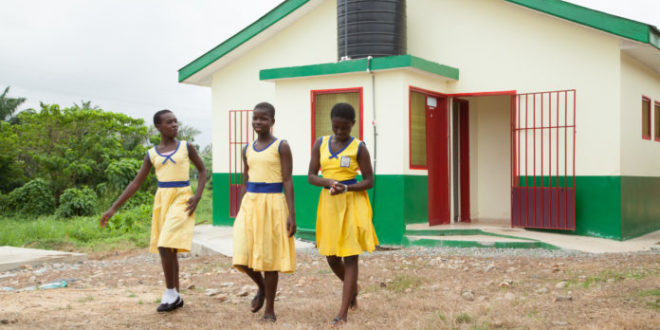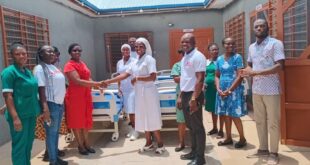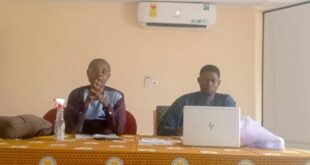A research Commissioned by Plan International Ghana has revealed that over 70% of rural girls bath only once during menstruation.
The survey was part of the NGO’s implementation of 2,247,500 Euro – Plan Germany Office Funded project dubbed “Rural, Water, Sanitation and Hygiene (RWASH)” in 36 beneficiary communities in Akuapem North Municipality and Okere in the Eastern, Agona East District in Central and Afadzato South District in Volta region
Globally ,it is estimated that 800 million women menstruate daily.
Many of these women, particularly teenage girls in rural parts of developing countries such as Ghana struggle to have access to sanitary products compelling them to use unhygienic materials to manage their menstrual flow.
Apart from this, Menstrual hygiene management (MHM) remains a chronic challenge to the adolescent girl child.
Menstruation is inevitable monthly biological process which requires good hygiene practices right from menarche. Poor menstrual hygiene management can adversely affect the health of the girl child and cause shame, stigmatization, low self-esteem, fear, and this may further lead to absenteeism in school.
Majority of the 403 girls interviewed during the research in each of the eighteen(18) selected rural communities across the beneficiaries Districts disclosed bathing only once a day during menstruation.
“In Akuapem North,only16.33% said they bath twice a day.In Okere it was 22.71%, Agona East District was 33.07% and 27.88% in Afadzato South”.Lead Gender Specialist with Plan International Ghana, Lilian Bruce disclosed.
She mentioned the root causes as”inadequate water supply, Cultural and Traditional norms that prevent women or girls from accessing Water from the river during menstruation and lack of menstrual hygiene awareness”.
She said, averagely, 12.86% of total teenage Girls sampled, do not use Sanitary pads during menstruation because they are unable to afford due to poverty therefore compelled to use all forms of unhygienic materials such as toilet roll and rags to manage their menstrual flows.
The challenge in accessing Menstrual Management Products in rural parts of Ghana is still a challenge forcing many teenage girls to sometimes exchange sex for Sanitary pads in desperate attempts to have menstrual hygiene products.
A key observation made during the research was that, majority of parents especially the men are oblivious of menstruation of their girls, therefore, admitted not buying sanitary pads for their daughters.
Also, Schools in the Communities lack toilet, handwashing and proper Washroom facilities therefore children who experience menarche or unexpectedly have their menses while in school dash home without returning to School.
The Eastern Regional Manager of Plan International Ghana, Kofi Adade Debrah, said the findings of the research are baseline data the project is tackling. He envisaged that,by the end of the RWASH project in 2021, there will be increase to access to gender-friendly water facilities, sanitation, improved hygiene for some 32,000 residents in beneficiaries communities with special attention on the girl child.
He said the NGO is currently embarking on public education on Menstrual hygiene Management and distribution of Sanitary pads in the beneficiary communities
Source: Ghana/Starrfm.com.gh
 Home Of Ghana News Ghana News, Entertainment And More
Home Of Ghana News Ghana News, Entertainment And More





